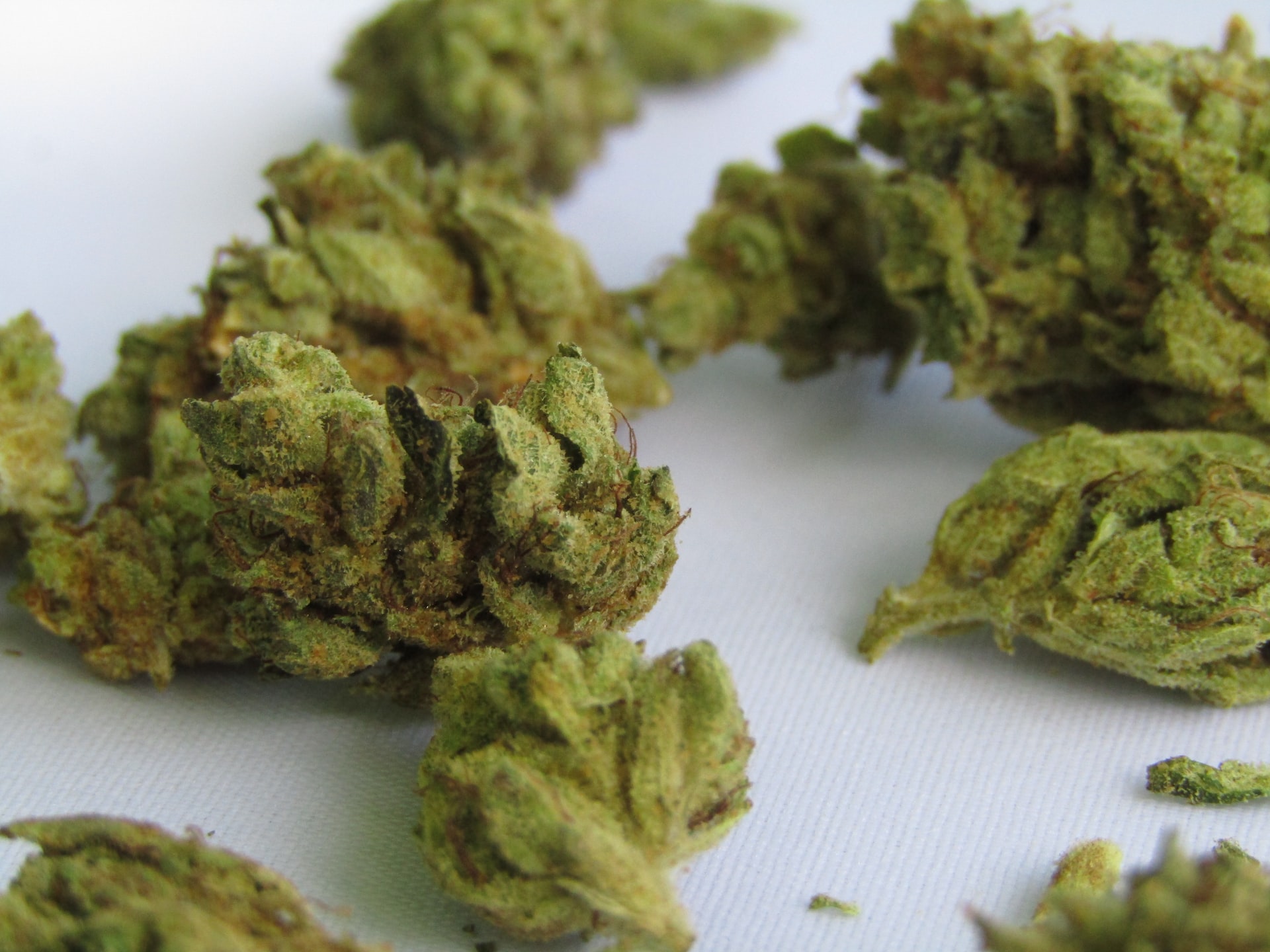Alzheimer’s disease is a progressive brain disorder. It slowly deteriorates the parts of the brain responsible for reasoning, memory, and language, eventually making it more and more difficult to perform everyday tasks. It’s the most common condition under the umbrella diagnosis of dementia. Other conditions considered a type of dementia include vascular dementia, lewy body dementia, and frontotemporal dementia.
According to the CDC, Alzheimer’s affects over 5.8 million people and typically develops around the age of 60. The disease has no known cause, but it is understood to be brought on by a mixture of age, genetics, and other lifestyle factors.
Treatment typically includes a mixture of medications a doctor will prescribe based on the progression and symptoms present in the patient. Along with these medications, various other natural remedies may also help, including cannabis.
The connection between weed and Alzheimer's disease is complicated, especially since they both can affect part of the brain responsible for memory. Before using cannabis to treat Alzheimer's it's important to untangle this complex relationship and understand how cannabis may play a role in its development and its effectiveness as a potential treatment.
What is Alzheimer’s Disease?
Alzheimer's is a form of dementia. It’s a progressive disorder in which the brain slowly changes, mainly impacting memory and cognition while basic functioning deteriorates over time. The disease is characterized by the development of amyloid plaques that form within the spaces of the nerve cells and neurofibrillary tangles that collect within the neurons.
This process occurs in brain areas responsible for cognitive function and memory, affecting the neuron's ability to communicate, repair and metabolize. The loss of function ultimately results in cell death.
Symptoms vary from patient to patient, but beyond memory loss, typically manifest as struggling to find words, difficulty understanding visual images and spatial relationships, and impaired judgment. These challenges can result in mood changes, wandering or getting lost, and a general inability to function independently. There is no cure for Alzheimer's. Symptoms progress, and the disease ultimately results in death.
There are a few different types and levels of severity of Alzheimer's.
- Preclinical Alzheimer's refers to a time period in which changes in the brain develop as early as ten years before memory and cognitive function are impaired. Not everyone with Alzheimer's experiences this stage.
- Early-onset Alzheimer's develops in patients as young as 30.
- Late-onset Alzheimer's happens in patients 60 and older.
- Mild cognitive impairment is another brain disorder that affects memory and can be an early indicator of Alzheimer's, but it also may never lead to developing the condition.
- Moderate Alzheimer's is the stage in the disease where patients need more care and help to perform daily tasks and function successfully.
- Severe Alzheimer's is the end of the condition's prognosis where patients lose the ability to communicate and function, requiring constant care, and indicates the patient is close to the end of their life.
While age isn’t a direct cause of Alzheimer's, at least one out of three people over 65 die as they develop the disease. Researchers believe it’s partly due to the change that happens to the brain as people age. However, it’s just one risk factor that can contribute to the development of the disorder.
The likelihood of developing Alzheimer's is also increased by conditions that affect the heart and blood vessels, like diabetes, stroke, and high blood pressure. Other risk factors include a genetic predisposition to the disease and lifestyle factors like weight, sleep issues, stress, smoking tobacco, and marital status.1,2 Traumatic brain injuries like concussions that can damage the brain may also increase the risk of developing Alzheimer's.
It’s a complex brain disorder that can be affected by several internal and external factors. To reduce your risk of developing Alzheimer's, the CDC recommends maintaining a healthy weight, keeping blood pressure and blood sugar at healthy levels, avoiding smoking and excessive drinking, and getting enough sleep.
Is There a Link Between Weed and Alzheimer’s?

Alzheimer's and weed both impact the parts of the brain responsible for memory and cognitive function, so there is reason to believe that cannabis use may not be the best treatment for the disease as it may exacerbate its symptoms.
Effects on memory are relatively common with cannabis consumption, particularly THC consumption. Although many of the studies are done on animals, researchers have found that THC affects the hippocampus, an area of the brain responsible for the memory-building ability to process information. Most of the time, these are short-term effects of THC and are dose-dependent and specific to the individual.
There are mixed results regarding the long-term effects of cannabis use on memory.3 However, there is a clear link that researchers believe lies somewhere in the relationship between the endocannabinoid system (ECS) and brain-related ailments.4
Can Weed Cause Alzheimer's?
Cannabis use is known to cause impairments to cognitive ability and memory via its effect on the hippocampus and other areas of the brain. That said, it’s typically short-term, although some studies have stated the potential adverse effects of long-term use on the age-related loss of hippocampal neurons.5
But does weed cause Alzheimer's?
Whether cannabis causes Alzheimer’s is unclear. There is no research regarding cannabis being a direct cause of Alzheimer's disease. However, there does seem to be a link between the disease, brain health, and the effects of cannabinoids on these, as well as the ECS.
More research is needed to explore any potential adverse effects of cannabis on the development of neurodegenerative diseases.
Does Weed Have a Beneficial Effect on Alzheimer's?

Researchers still call for further studies but have found some promising effects of cannabinoids on Alzheimer’s. One extensive review of studies reported that cannabinoids have several impacts on the brain, its functions, and potential symptoms of Alzheimer's.6 This includes:
- The ability to reduce the development of amyloid plaques, the formation of neurofibrillary tangles, and neuroinflammation.
- Cannabinoids also bind and interact with the endocannabinoid system associated with neurodegenerative diseases. Researchers believe cannabis may modify the system enough to be therapeutic to Alzheimer's.
- The correct dosage and timing are significant factors in finding a helpful treatment for the disease. While higher doses of cannabis may negatively impact memory and learning, smaller dosages may be more beneficial.
- One of the most interesting findings of the above study is that cannabinoids showed the ability to induce neurogenesis in the hippocampus, a process that can reverse the cognitive decline that comes with aging.7
Cannabis may also be helpful for other conditions or symptoms, which may either increase the risk of developing the disease or speed up its progression. Beyond just THC, other cannabinoids have been documented in its potential ability to help with conditions like sleep issues, pain, anxiety, and stress and aid in the recovery of more severe conditions like TBI.8
It has also been noted that cannabis can positively impact some behavioral and mood changes, common side effects in patients with dementia diagnoses.
There is no cure for Alzheimer's disease, just management of its progression and symptoms. While weed and Alzheimer's may have a complicated relationship, research indicates that the brain, the ECS, and cannabinoids in the proper dosages may potentially affect one another beneficially.
What About CBD and Alzheimer's?
Some patients may be curious about isolated CBD’s effect on Alzheimer's, since the cannabinoid is known for its anti-inflammatory, antioxidative, and neuroprotective properties. It also doesn’t induce THC's intoxicating effects.
CBD may be helpful for a few different neurological disorders, specifically those with symptoms of seizures.9 It may also help ease secondary symptoms like sleep, mood, and behavior changes often accompanying Alzheimer's.
CBD has also been studied for its direct effects on the disorder. A 2021 literature review noted that CBD reduced the accumulation of neurofibrillary tangles, which are responsible for causing the changes in the brain of Alzheimer's patients.10 Another assessment of studies on CBD and Alzheimer’s disease noted that, when studied on rats with Alzheimer's, the cannabinoid promoted neurogenesis and could reverse and prevent the development of cognitive impairment. The study also mentions that both THC and CBD are valid candidates for further studies on Alzheimer's.11
This was reiterated in another study on cannabinoids’ effect on Alzheimer’s. Researchers stated that CBD was useful for treating the causal factors of the disease, the same as THC. However, it was essential for them to note that cannabinoids may be more effective when used alongside each other rather than in an isolated form.12
If you’re interested in using cannabis for Alzheimer's disease and its symptoms, it is of the utmost importance to talk with a doctor first.
While cannabinoids may be helpful, finding the right product and dose is crucial to a pleasant experience. Cannabinoids like CBD also have the potential to interact with or exacerbate side effects associated with some medications prescribed for Alzheimer's.13
References
- Silva MVF, Loures CMG, Alves LCV, de Souza LC, Borges KBG, Carvalho MDG. Alzheimer's disease: risk factors and potentially protective measures. J Biomed Sci. 2019;26(1):33. Published 2019 May 9. doi:10.1186/s12929-019-0524-y
↩︎ - Sommerlad A, Ruegger J, Singh-Manoux A, Lewis G, Livingston G. Marriage and risk of dementia: systematic review and meta-analysis of observational studies. J Neurol Neurosurg Psychiatry. 2018;89(3):231-238. doi:10.1136/jnnp-2017-316274
↩︎ - Kroon E, Kuhns L, Cousijn J. The short-term and long-term effects of cannabis on cognition: recent advances in the field. Curr Opin Psychol. 2021;38:49-55. doi:10.1016/j.copsyc.2020.07.005
↩︎ - Vasincu A, Rusu RN, Ababei DC, et al. Endocannabinoid Modulation in Neurodegenerative Diseases: In Pursuit of Certainty. Biology (Basel). 2022;11(3):440. Published 2022 Mar 14. doi:10.3390/biology11030440
↩︎ - Yücel M, Lorenzetti V, Suo C, et al. Hippocampal harms, protection and recovery following regular cannabis use. Transl Psychiatry. 2016;6(1):e710. Published 2016 Jan 12. doi:10.1038/tp.2015.201
↩︎ - Abate G, Uberti D, Tambaro S. Potential and Limits of Cannabinoids in Alzheimer's Disease Therapy. Biology (Basel). 2021;10(6):542. Published 2021 Jun 17. doi:10.3390/biology10060542
↩︎ - Toda, Tomohisa, Sarah L. Parylak, Sara B. Linker, and Fred H. Gage. 2018. “The Role of Adult Hippocampal Neurogenesis in Brain Health and Disease.” Molecular Psychiatry 24 (1): 67–87. https://doi.org/10.1038/s41380-018-0036-2.
↩︎ - National Academies of Sciences, Engineering, and Medicine, Health and Medicine Division, Board on Population Health and Public Health Practice. Therapeutic Effects of Cannabis and Cannabinoids In: The Health Effects of Cannabis and Cannabinoids: The Current State of Evidence and Recommendations for Research. National Academies Press (US); 2017. https://www.ncbi.nlm.nih.gov/books/NBK425767/
↩︎ - Strickland JC, Jackson H, Schlienz NJ, et al. Cross-sectional and longitudinal evaluation of cannabidiol (CBD) product use and health among people with epilepsy. Epilepsy & Behavior. 2021;122:108205-108205. doi:https://doi.org/10.1016/j.yebeh.2021.108205
↩︎ - Xiong Y, Lim CS. Understanding the Modulatory Effects of Cannabidiol on Alzheimer's Disease. Brain Sci. 2021;11(9):1211. Published 2021 Sep 14. doi:10.3390/brainsci11091211
↩︎ - Watt G, Karl T. In vivo Evidence for Therapeutic Properties of Cannabidiol (CBD) for Alzheimer's Disease. Front Pharmacol. 2017;8:20. Published 2017 Feb 3. doi:10.3389/fphar.2017.00020
↩︎ - Kim SH, Yang JW, Kim KH, Kim JU, Yook TH. A Review on Studies of Marijuana for Alzheimer's Disease - Focusing on CBD, THC. J Pharmacopuncture. 2019;22(4):225-230. doi:10.3831/KPI.2019.22.030
↩︎ - Balachandran P, Elsohly M, Hill KP. Cannabidiol Interactions with Medications, Illicit Substances, and Alcohol: a Comprehensive Review. Journal of General Internal Medicine. Published online January 29, 2021. doi:https://doi.org/10.1007/s11606-020-06504-8
↩︎
The information in this article and any included images or charts are for educational purposes only. This information is neither a substitute for, nor does it replace, professional legal advice or medical advice, diagnosis, or treatment. If you have any concerns or questions about laws, regulations, or your health, you should always consult with an attorney, physician or other licensed professional.




